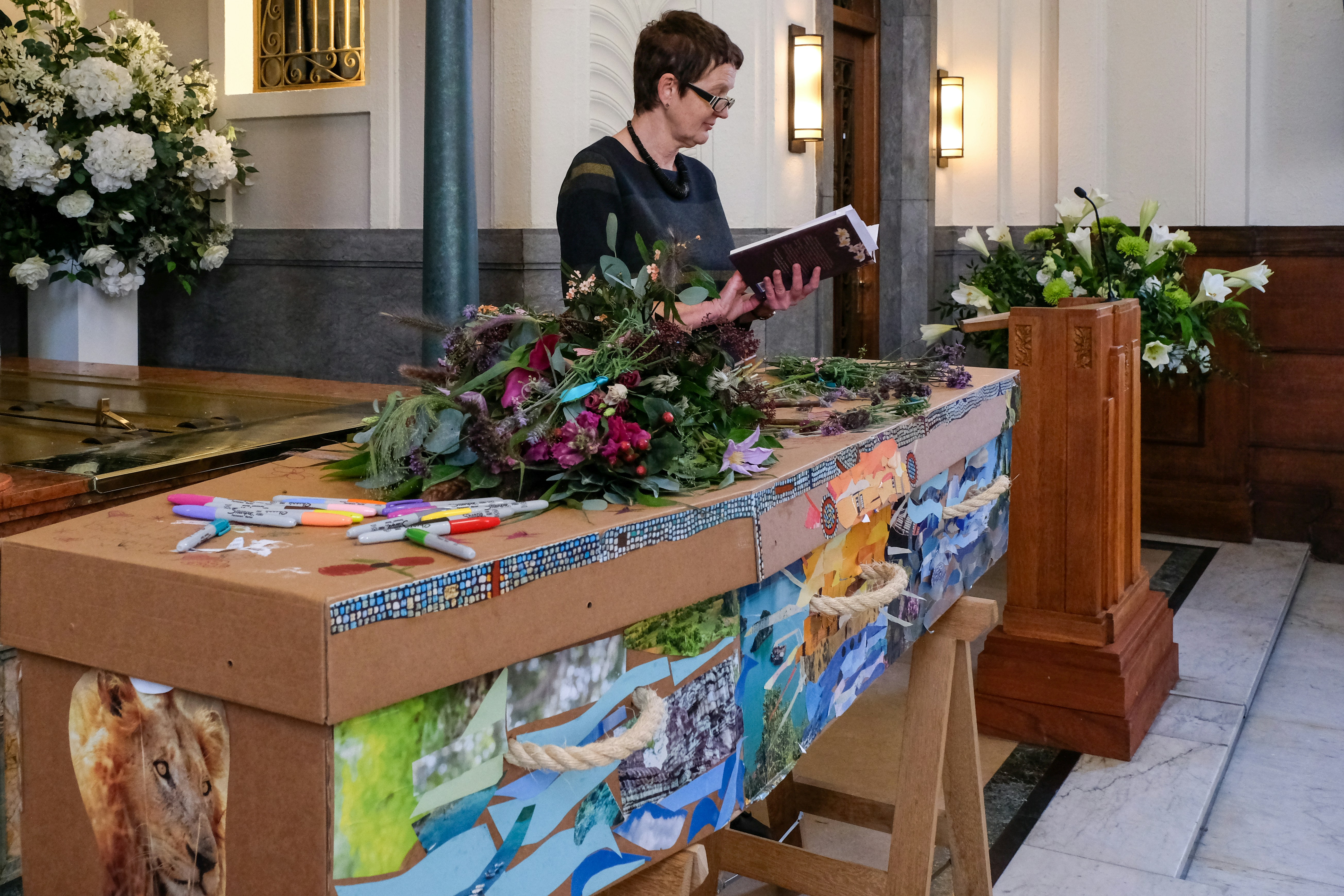
A eulogy is a speech or written tribute that is usually delivered at funerals or memorial services to honor and commemorate the life of someone who has passed away. It is an opportunity for friends, family members, or other individuals close to the deceased to share memories, stories, and reflections about the person’s life.
Because I’m a death doula with over fifteen years of experience writing columns for The Tampa Tribune, Creative Loafing, and more – people hire me to write eulogies. My eulogies celebrate the individual, highlight their accomplishments, and offer comfort and support to grieving loved ones.
Eulogies vary widely in tone and content, depending on cultural, religious, and personal preferences. Some of my eulogies focus on recounting my client’s achievements and contributions, while others may emphasize anecdotes and the qualities that made him/her/them unique.
My primary goal is to provide a meaningful and respectful tribute capturing the essence of the remembered person.
Who Delivers a Eulogy?
Close friends, family members, or someone with a significant connection to the deceased usually deliver the eulogy. In some cases, multiple individuals may contribute to the eulogy, sharing different perspectives and aspects of the person’s life.
Writing and delivering a eulogy can be a challenging but important part of the grieving process, allowing loved ones to come together to remember and honor the person who has passed away.
Differences Between Obituary and Eulogy
While both obituaries and eulogies are associated with death and memorializing a person who has passed away, they serve different purposes and are presented in different formats.
Obituary
An obituary is a formal announcement of a person’s death. Its primary purpose is to inform the public about the death and provide essential details about the deceased person’s life.
Obituaries typically include factual information such as the person’s name, age, date and place of birth, date and place of death, surviving family members, and details about the funeral or memorial service.
Clients often ask me to write obituaries. I write them straightforwardly and objectively with some gentle humor if appropriate. (I’ve written mine…and it’s hilarious.) Newspapers, online platforms, or other media publish them to inform the community of the death.
Eulogy
A eulogy is a more personalized and emotional tribute given during a funeral or memorial service. Its purpose is to celebrate the life of the deceased, share memories, and offer comfort to the grieving attendees.
Eulogies provide a more intimate and subjective view of the individual’s life.
They can be delivered orally by a speaker during a memorial service. In some cases, written versions may be distributed or published. Eulogies are generally more expressive and may include a mix of emotions, such as humor, sadness, and gratitude.
History of the Eulogy
The practice of delivering eulogies has ancient roots and has evolved over centuries. The tradition of eulogizing the deceased has been a part of various cultures and religious practices throughout history.
Ancient Greece and Rome
The concept of honoring the deceased with spoken words dates back to ancient Greece and Rome. In these civilizations, people delivered speeches praising the virtues and accomplishments of individuals, especially those who held prominent positions in society.
People read them at formal funeral ceremonies as well as public events and celebrations.
Historical Roots
With the spread of Christianity, eulogies took on a more spiritual tone. During Christian funeral services, speakers often focused on the deceased’s faith, virtues, and the hope of an afterlife. Eulogies became a way to console the grieving and provide a sense of continuity through religious beliefs.
In the Middle Ages, eulogies continued to be an essential part of funeral customs. People read them during processions, at the graveside, or as part of memorial services in churches, synagogues, temples, and mosques.
The content of eulogies during this period was heavily influenced by religious themes.
During the Renaissance and Enlightenment periods, there was a shift toward a more secular and humanistic approach to eulogies. While religious themes remained important, speakers also began to emphasize the individual’s contributions to society, intellectual achievements, and personal virtues.
Recent Past, Today, and Beyond
In the 19th century, especially in Western cultures, eulogies became more formalized and structured. Clergy, family members, or close friends delivered these funeral orations. The eulogy became a central component of funeral rituals and loved ones published them in newspapers as a way to memorialize the deceased.
In modern times, the format and style of eulogies have continued to evolve. Eulogies are now delivered by a variety of individuals, not just religious leaders or close family members. Personal anecdotes, stories, and a more informal tone have become common elements as people seek to create a more personalized and heartfelt tribute.
Eulogies play a significant role in my clients’ memorial services – and even living funerals – across various cultures and religions, serving as a way to remember and celebrate their lives.

How to Write a Eulogy
Writing someone else’s eulogy is a significant responsibility and can be a deeply emotional task. Here are some guidelines I use when writing a thoughtful and meaningful eulogy for a client.
Gather Information
I collect information about the person’s life, including key events, achievements, relationships, hobbies, and values. Speaking with family members, friends, and colleagues helps me to gather a comprehensive understanding of the person.
Consider the Tone
I determine the appropriate tone for the eulogy by considering the personality of the person and the atmosphere we want to create at the funeral. My tone can be reflective, celebratory, or a combination of both.
Structure the Eulogy
I organize the eulogy in a way that flows naturally, choosing a chronological structure, highlighting different stages of the person’s life, or a thematic structure that focuses on specific aspects such as achievements, relationships, or values.
Introduction
You want to begin with a warm and sincere introduction. I typically start by acknowledging the grief in the room and expressing gratitude for everyone’s presence. I use anecdotes and personal stories to illustrate the person’s character, passions, and impact on others. These stories help make the eulogy more personal and relatable.
Important Details
Sometimes it’s best to acknowledge the person’s accomplishments and contributions. This could include professional achievements, personal milestones, or any positive impact they had on their community.
You might want to emphasize the person’s relationships with family, friends, and colleagues. Sometimes I’m hired to write eulogies from a specific point of view. I highlight their qualities as a friend, parent, spouse, or colleague. This includes mentioning specific moments that showcase their love, generosity, or support for others.
Emotional
The best eulogies take a moment to express gratitude for the time we had with the person and for the positive influence they had on our lives and the lives of others.
It’s okay to express emotions when writing a eulogy. Share the joy, laughter, and love the person brought into the lives of those around them. It’s also acceptable to acknowledge the sadness and grief felt by those in attendance.
Conclusion
I conclude the eulogy with a heartfelt closing that reinforces the person’s impact and legacy, leaving the audience with a message of inspiration or reflection.
Practice
If I’m delivering the eulogy, I always practice saying it ahead of time. This also helps me to revise and edit as needed, keeping in mind the sensitivities and emotions of the audience.
Sample Eulogies
Click here to read two of the many eulogies I’ve written, with names changed to protect my client’s privacy.

An Honorable Art
One of the blessings of an expected death is telling someone how important they are before they’re gone. Sometimes that can be hard to say out loud. Writing a eulogy is a great way to share your love with someone while they’re still alive and make those last few days or weeks more meaningful.
Remember that writing a eulogy is an opportunity to share someone’s story and create a lasting memory for those who knew them. You can’t go wrong if you approach the task with empathy, sincerity, and respect for the person and their loved ones.
If you want a professionally written eulogy, contact me anytime.


Recent Comments